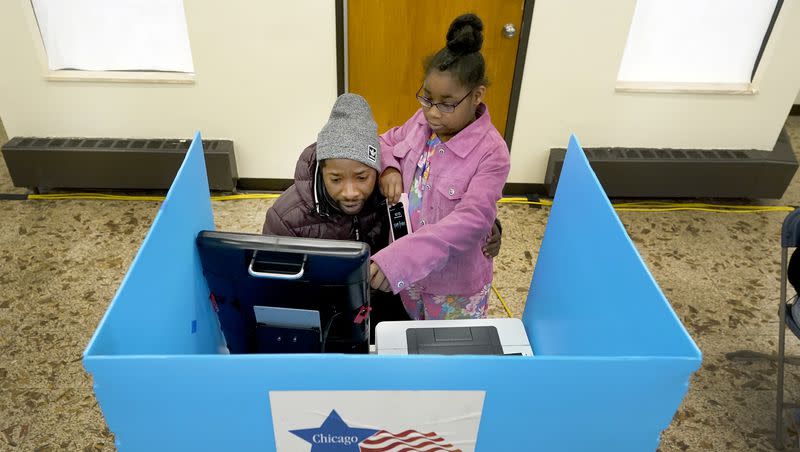A closer look at which states best represent America — and which fall short

At the beginning of the presidential election year, all eyes were on Iowa and New Hampshire to see which Republican presidential nominee would win their votes in the first electoral caucuses of 2024.
A new WalletHub survey analyzed how well the composition of an electorate reflects the demographics of the population it represents and which state best represented the United States as a whole.
States with the closest overall representation:
Illinois.
Florida.
Ohio.
Virginia.
Pennsylvania.
States with the furthest overall representation:
Utah.
Mississippi.
Alabama.
Wyoming.
Vermont.
“Illinois, Florida and Ohio reflect the electorate far better than Iowa and New Hampshire, which only rank 19th and 36th out of the 50 states in terms of how well their demographics match up with the U.S. population overall,” WalletHub analyst Cassandra Happe said, per WalletHub. “Instead of basing the order on tradition or political favor, we should consider putting the most representative states first during the presidential primaries.”
What makes a state No. 1 and No. 50?
No single state can perfectly represent the United States in all aspects due to the country’s vast diversity, but Illinois had a “94% similarity when all demographics are averaged.”
“It’s most similar in terms of gender, age, the share of residents born in the U.S. and the unemployment rate, with more than 99% similarity for each of those metrics,” according to the survey.
Regarding representation, Utah ranked last place in the following categories, making it an atypical representation of the country:
Religious composition of adults.
Wealth gap.
Age characteristics.
However, every state contributes uniquely to the nation's fabric, and the concept of being the “worst” or “best” representative is largely subjective and dependent on the measures used for comparison.
Related
Why Iowa and New Hampshire are first in the presidential primaries
The two states have been the first stop for presidential candidates on their campaign trail for years.
“Since 1976, both parties have held their first presidential nominating contests in Iowa, and the Iowa state legislature passed a law saying that its caucuses need to be held at least eight days before any other nominating contest,” per the National Constitution Center. “While Iowa holds the nation’s first presidential nominating contest, New Hampshire holds the nation’s first primary election.”
Both states do not accurately reflect the nation’s ethnic and racial diversity, and New Hampshire has an older median age compared to the national average, according to the U.S. Embassy Japan. Nevertheless, they are pivotal in the presidential nomination process for both major American political parties.
In the WalletHub survey, Iowa ranked 19th and New Hampshire 36th in the electorate representation index. With rankings like these, critics have challenged the disproportionate influence these states wield every presidential election.
When asked if states that mirror the national electorate should come earlier in the primary process and if it would affect the U.S. election process, Alison Dagnes, professor and chair of the political science department at Shippensburg University, told WalletHub, “The national electorate is diverse, but some states have electorates that are far more homogenous.
“Also, the Democratic Party tends to be more diverse than the GOP, which means that the two parties are speaking to different constituencies. This is why the Democrats changed their primary schedule to make South Carolina, which is a more diverse state, hold their first-in-the-nation primary. The parties can change the election order to best suit their needs since the parties are the ones who hold the primary elections in the first place,” Dagnes added.

